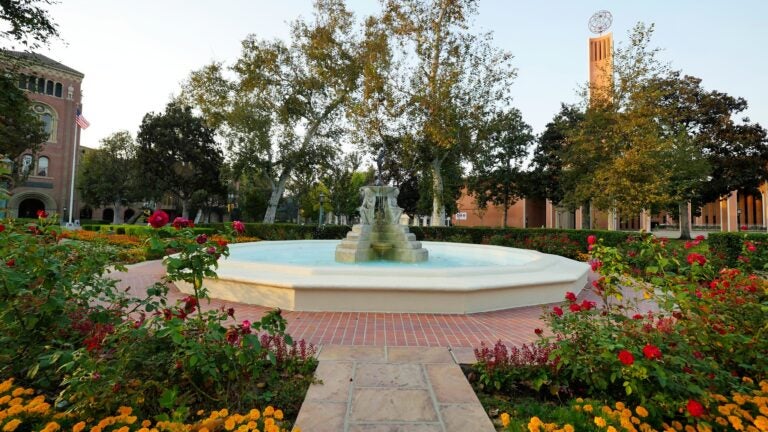More About IDM
-
In this program students learn:
- To identify and develop an independent research project
- To design an individual, thematic curriculum
- To engage in self-directed research
- To integrate perspectives and methodologies from different fields; and
- To work with scholars in different disciplines who share a common academic interest
Additional learning outcomes depend upon the particular focus of the research project and the disciplines chosen to investigate it.
-
Admission to the program is competitive. A demonstrated capacity for individual work is absolutely essential. Applicants for the Interdisciplinary Major Program must submit:
- the application form signed by two faculty members willing to serve on your Guidance Committee;
- a copy of your current transcript; and
- a 3-4 page proposal explaining the research the research project which will ultimately lead to your Interdisciplinary Thesis
To apply, you must have:
- completed 80 units or less towards a degree;
- a minimum GPA of 3.0, although students with GPA’s below 3.3 are the exception; and
- a focused interest in an area of research which falls between two or more existing academic departments.
Applications can be sent to inds@usc.edu and must be completed before an interview with the INDS Program Director is arranged.
Proposed Curriculum
On the application form, you will be asked to list eight upper-division (300 or 400 level) courses, in addition to INDS 494 Senior Thesis (4 units), which would make up your Interdisciplinary Major. You should also list any pre-requisites at any level that are necessary to enroll in the courses you have proposed as your program. Please include the department number, and title for each course listed, and star (*) those you have already completed or begun.
Project Summary
Please provide a sentence or two summarizing the essential points of your 3-4 page proposal: what areas will your program combine? Toward what sort of INDS Thesis Project will these lead? Why is an Interdisciplinary Major necessary to address this research interest?
-
The Interdisciplinary Major Program is offered by USC Dornsife College of Letters, Arts & Sciences for highly qualified students with a focused subject matter that does not fall within the scope of a single major discipline. Students whose academic goals cannot be satisfied by pursuing an existing major, or combination of majors and minors, propose individual interdisciplinary majors by enlisting the support of two faculty members from different disciplines who are willing to serve as Guidance Committee members on that student’s individual project. (One of these two faculty must be from a department in the USC College.) The student complete an application form and attaches a 3-or-4-page desciption of his or her intended program of study.
What does my signature mean?
Support of a student’s Indersciplinary Major implies that the faculty believe the project to be worthwhile, that it should form the basis of a coherent undergraduate education, and that the resources necessary to complete it are available at the University, including the faculty member’s own time. THere are two supporting roles for faculty to accept:
The Guidance Committee Chair, who will meet with the student, helping to draw up an appropriate curriculum of eight upper-division (300- or 400-level), 4-unit courses plus the Senior Thesis, INDS 494, a ninth course to be completed at the end of the student’s undergraduate program. The Guidance Committee Chair agrees to supervise that Thesis, which includes a substantial research paper of 30 pages or so, and may also include other original works such as book manuscripts, screenplays, intermedia projects, and so on.
The Second Reader, who will also meet with the student to assist the student in drawing up a curriculum, particularly in those academic areas in which the faculty has expertise, and to help the student toward the completion of his or her inderdisciplinary project. THe Second Reader will serve as a second reader on the student’s final research paper, as well, and may direct a Tutorial or Independent Study with the student in the process.
The Guidance Committee, comprising of a Chair and Second Reader, meets with the student soon after the proposal has been approved by the Interdisciplinary Major Program, to discuss the project together and chart an academic course.
Once or twice a semester, the Interdisciplinary Major Program brings students and faculty working on projects to share their experiences and resources; both faculty and members supporting an individual student are invited. Although students are usually urged to attend, faculty participation at these gatherings is voluntary, respecting your busy schedule.
For more information about the IDM program, please email Richard Fliegel at fliegel@usc.edu.
-
- cyber intelligence and security
- urban design for sustainability and change
- NGOs and social change
- cognitive science and design
- genetic predictors of ovarian cancer
- the relationship between epileptic seizures and learning
- the art and science of dance
- graphic arts and the Ballet Russe
- Japanese music and philosophy
- the social role of photography
- linguistic theoretical models in international relations
- the post-apartheid generation in South Africa
- a history of the region where Mexico City now stands
- the Chinese political economy
- questions of value in business and philosophy
- conceptions of childhood
- animated interactive narrative
- representations of the Shoah
- globalization and social movements
- the efficacy of non-violence
Contact Us
Dornsife Undergraduate Programs
undergraduateprograms@dornsife.usc.edu
213.740.2961
Richard Fliegel, Ph.D.
Director of the Interdisciplinary Major Program and Associate Dean for Undergraduate Programs
Tim Gustafson, Ph.D.
Faculty Director of the Interdisciplinary Major Program and Associate Professor of English and American Studies and Ethnicity
